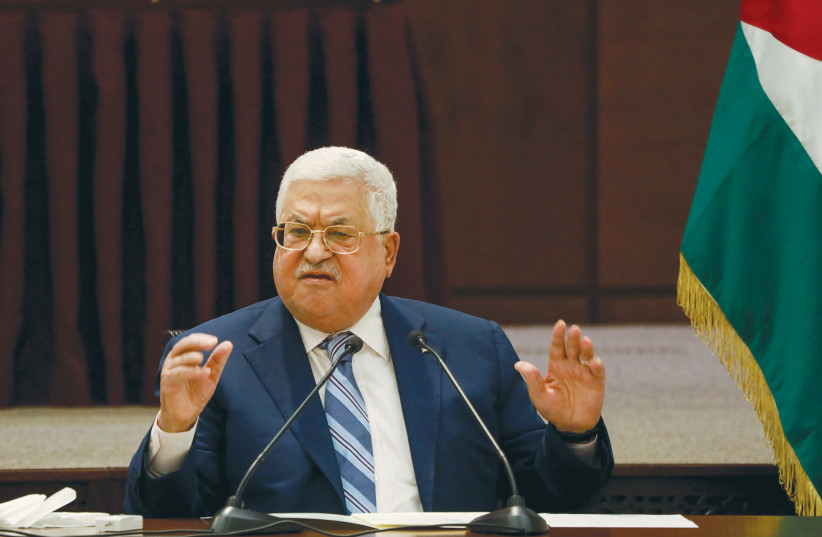Several months ago, a new Palestinian militia emerged – the Nablus-based Palestinian Lions’ Den.
The significance of this group does not lie in its military might – the importance lies in why it has gained popularity. Understanding the reason behind the Lions’ Den’s emerging attractiveness, influence and power offers valuable insight into the Palestinian inner politics and Palestinian society today.
One of the Lions’ Den’s principles – and marketing points – is that it refuses to align or identify itself with any of the established Palestinian forces, such as Fatah, Hamas, the Islamic Jihad in Palestine, and the Popular Front for the Liberation of Palestine.
This fact is important for several reasons. It reflects the two core trends that both illustrate and fuel the deepening inner Palestinian crisis. First, the Palestinian people have lost confidence in their leadership. Second, they realize that the current strategy – the violent struggle – isn’t bringing them closer to anything other than a constant loop of destruction.

Palestinians losing confidence in the Palestinian Authority and Hamas
Many Palestinians have lost confidence in the Palestinian Authority and Fatah (the main party in the PA government), which controls the West Bank and nearly 90% of the Palestinians in the West Bank; and in Hamas – the Islamic Hamas movement that controls the Gaza Strip and its nearly two million Palestinian residents.
In the West Bank, Fatah and, by extension, the Palestinian Authority, is seen by many Palestinians as corrupt and irrelevant. After launching a military coup and overthrowing Fatah and the Palestinian Authority’s rule in the Gaza Strip in 2007, Hamas gained control of Gaza and has dragged Gazans down a one-way street toward a depressing dead end of death, despair and destruction.
Since Hamas’s violent, bloody and deadly coup in 2007, Fatah and Hamas have been engaged in a life-and-death power struggle to control the Palestinians and the Palestinian street. This zero-sum game is why all attempts of Arab leaders to reconcile the two leading Palestinian powers have failed.
In addition to the crisis of confidence in Fatah and Hamas, what plagues some of the Palestinians today is the realization that for years they have been trapped in a perpetual tragic loop between idealizing and romanticizing the narrative of armed struggle and internalizing – in a slow and tortuous process – that all this does is take them “one step forward and two steps back.”
In every violent round between Israel and Gaza, the same story repeats itself again and again. It starts with the Palestinians – especially in the West Bank and less so in the Gaza Strip – supporting, identifying with, and praising Hamas and Islamic Jihad. But when the dust settles and the scale of destruction and death caused by Israel’s counteroffensives becomes clear, those euphoric feelings are replaced by sharp criticism and increasing despair.
The Lions’ Den emerged when the Palestinian Authority faced a critical crossroads. Mahmoud Abbas, Fatah’s aging chairman and president of the PA, is nearing the end of his tenure.
Fatah’s always-simmering internal political power struggles are increasingly bubbling to the surface. The battle for control over the party may very well evolve into a violent collision between the rival camps in the Palestinian cities, towns, and territories controlled by the Palestinian Authority.
Understanding why the Palestinian street reveres the Lions’ Den militia is essential. It is not only because they attack Israeli civilians and soldiers but also because the militia consciously refuses to identify with any of the established and existing Palestinian forces and political bodies.
Could this herald the formation of a new, grassroots political force in Palestinian society? Could the emergence of a new power-player help the Palestinians break out of the tragic cycle in which they are trapped? Could it lead to new, more constructive paths forward and a brighter future for them and the region? What price will both Palestinians and Israelis pay if a third power broker emerges? These are just some of the unanswered questions we face today.
If a new grassroots Palestinian political movement does materialize, it is very likely we will be able to retrospectively point to the emergence of the Lions’ Den militia as a landmark event – and not a passing episode – in the history of the Palestinian national struggle in the ongoing story of the Israeli-Palestinian conflict. ■
Avi Melamed, the author of Inside the Middle East: Entering a New Era, is a former Israeli intelligence official and former senior Arab affairs advisor to Jerusalem mayors Teddy Kollek and Ehud Olmert. He is fluent in the languages and cultures of the Middle East and an expert on current regional affairs and their impact on the geopolitics of the Middle East. He is the founder and chief education officer of Inside the Middle East, a nonprofit devoted to providing professional knowledge about the Middle East and empowering critical thinking by way of non-partisan and innovative education.
